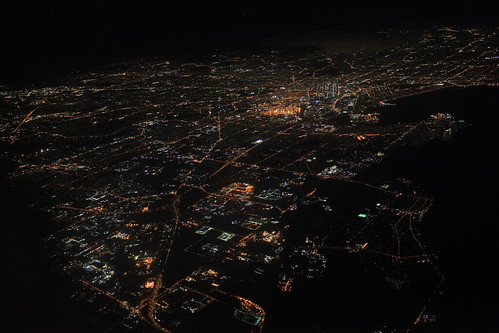On MH17 and Air Travel
Air travel is close to our heart. It is a means to our dreams, and a means to reach our loved ones. It brings us to a vantage point we would otherwise never reach, and a soaring height only few before our generation could imagine.
This is Melbourne at night. It is the scenery I enjoy every fortnight as I travel between work and family. It is also the scenery that many on #MH17 would have enjoyed have they made the connection flight to Melbourne, and where the 100 AIDS researchers and activists would have convened to further their noble effort in curbing the AIDS epidemic.
Even though I fly quite often, every time the jet engines revs up on the runway, I still get the jitters. This is the juncture where the devout offers a prayer to the Gods. This is also the juncture where I take comfort in the air safety statistics, the rigour of aeronautical engineering, the excellent training of the air pilots, and the relentless work of the ground staff checking on the aircraft's structure every time it lands.
Much has been written about the fragility of life in light of recent events. Every time I fly my mother would say "be careful" - and I know by that she actually means "please don't be unlucky". It is pointless pointing out that air travel is the safest mode of travel, because we as passengers have zero control over its safety, and when things go wrong, they go horribly wrong. "You only live once", as the partygoers say.
Let us grieve with our fellow friends and families. Let us offer our condolences. Let this be a seed for us to seek peace, for us to engage in world events and do our parts. Let this be a trigger for us to be a better person to strangers around us. Our individual lives are ephemeral, but our love and our values outlive us, and on the larger scale, this is what really matters.









0 comments:
Post a Comment